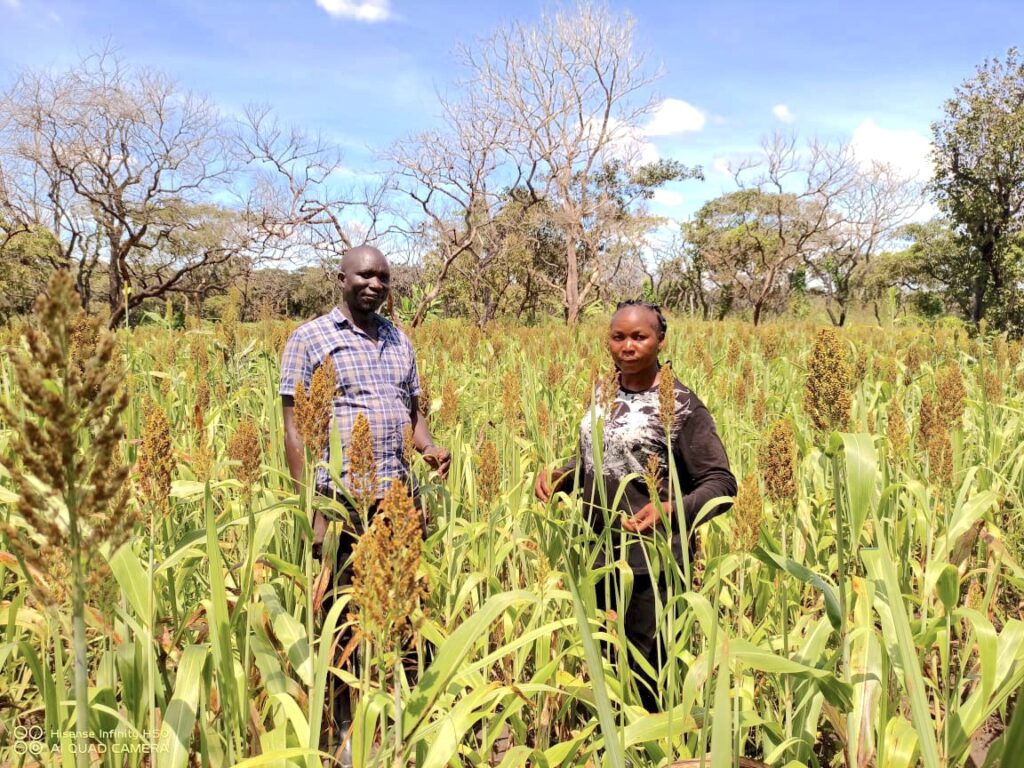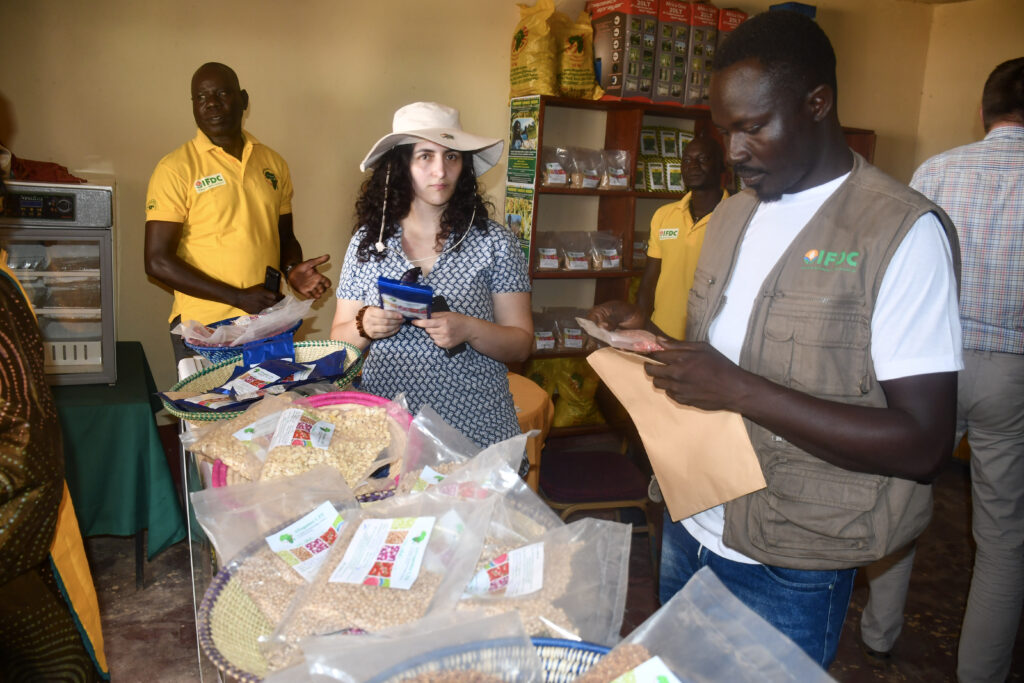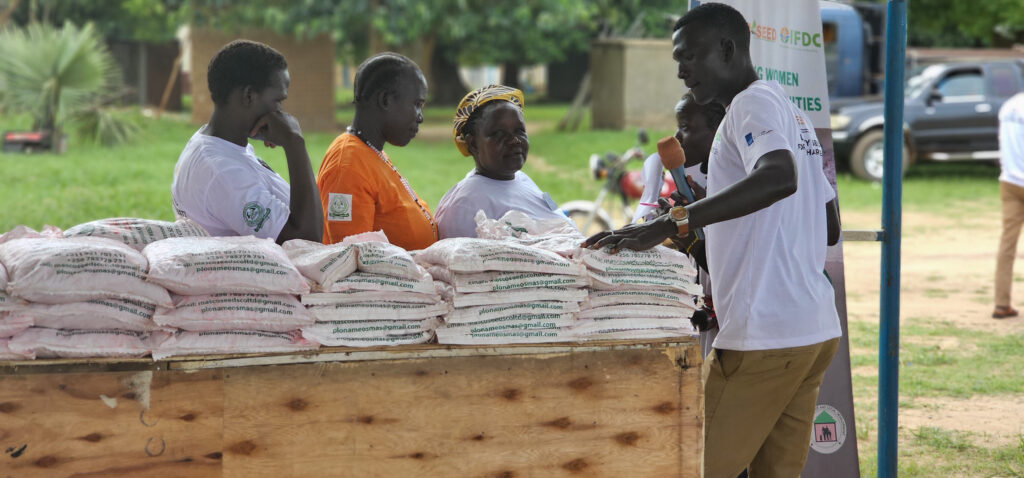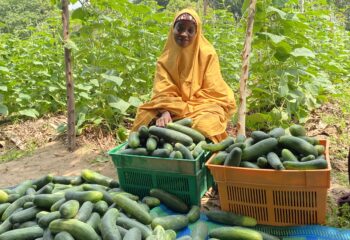
Seed systems are an integral, but often overlooked, component of global food security. Conflict and economic fragility in areas such as East Africa can reduce the availability of and access to quality seeds. Community displacement in times of conflict further disturbs the seed system and decreases the use of quality seed.
Temporary efforts to reduce the effects of these challenges for crisis-affected communities are inefficient; long-term efforts must be made to prevent market distortion and preserve agricultural economies in fragile areas.
IFDC/A3-SEED Approach
The Accelerating Agriculture and Agribusiness in South Sudan for Enhanced Economic Development (A3-SEED) initiative, led by the International Fertilizer Development Center (IFDC), has inspired and informed a specific approach to seed market systems. A3-SEED supports South Sudan’s transition from reliance on humanitarian aid to becoming a competitor in the seed market.
IFDC is engineering adaptable solutions for vulnerable areas to engage in seed distribution. Through expansion of the private sector, communities can enhance seed production and marketing while strengthening trade associations, which farmers can become involved with over time.
Conflict can distort markets with longer value chains by creating the appearance of scarcity and hindering last-mile delivery, the mechanism by which farmers and consumers receive the seeds and food they need to survive. In times of conflict, market distortions are less likely if the area’s regulatory frameworks enable domestic trade and agriculture. Domestic seed procurement creates opportunities for agribusiness leaders to gain independence and develop resilience, thus supporting the livelihoods of people throughout the fragile area.
Additionally, seed distribution can be supported by creating regional initiatives and utilizing research institutes to encourage further seed development and distribution. Market distortion can be prevented by building the capacities of agro-dealers and encouraging them to extend their networks to rural areas. Ensuring equal access to seeds across all communities allows competitive markets to persist and develop in times of conflict and fragility.

Key Strategies
Increasing commercial production of high-quality seed is paramount to A3-SEED’s efforts to increase seed system resilience. Diverse offerings and higher quantities of seeds offer more opportunities to participate in agriculture while simultaneously strengthening the capacity of seed companies. Stocking many seed varieties rather than only one or two allows seed companies to minimize the risk of significant financial loss if one seed variety proves unsuccessful. This strategy also prevents monocropping in fragile communities. Agriculturally diverse communities create long-term resilience and expand markets for the benefit of both producers and consumers.
A3-SEED encourages farmers to adopt good agricultural practices and supports seed systems by training farmers to use quality seeds responsibly. Information and communication technologies – such as extension, particularly private sector-led extension – can allow farmers to learn about the possibilities of agriculture.
Community engagement via local marketing and seed distribution systems offers ways for people to practice agriculture without having to leave their locality, shortening the value chain to improve last-mile delivery. Community engagement is effective at eliminating abstract ideas related to seeds; it gives people the ability to discover agriculture for themselves. Platforms for seed sales, such as physical shops and seed fairs, provide agro-dealers with the opportunity to interact with communities. To establish these platforms for agro-dealers, relief agencies may be encouraged to source and distribute locally produced seeds.
Outcomes
With successful implementation of seed market systems development, communities will begin to see increases in quality seed production and sales to aid organizations. These organizations can then multiply their impact by purchasing seeds from one fragile community to send to another.
Farmers will begin to see greater success in their production, and markets will emerge for the sale of both produce and seeds. Even in times of conflict, communities can increase their resilience through agriculture and remain food secure.

Risk Mitigation
In South Sudan, seed policy does not adequately support procurement and distribution. This lack of oversight results in minimal measures to guarantee the quality of seeds distributed across the country. Distribution of high-quality seeds could mitigate the risks associated with agricultural investments by enhancing yields and transforming agriculture from subsistence farming into a competitive livelihood. Moreover, enhancing the infrastructure of vulnerable communities could lead to better market access, bolstering seed systems and, consequently, the agricultural pursuits of individuals in these areas.
Opportunities for Collaboration
Although A3-SEED’s goal is for conflict-affected communities to have strong seed markets and not rely on humanitarian aid, such aid offers opportunities for creative distribution methods. If relief agencies can collaborate with companies to produce high-quality seed locally, they can directly enforce quality standards, regardless of government oversight. In this way, relief agencies can ensure that local resources meet the required standards for the seed being distributed. Local seed markets are not disrupted, and farmers are ensured access to high-quality seed not just during a crisis, but also in the seasons to come.
Conclusion
Sustainable market systems are vital to seed systems and initiatives in conflict-affected areas. Agriculture is necessary for communities to survive, regardless of regional crises. Aid and development organizations are responsible for seeking long-term agricultural solutions to regional instability. Food security, as well as individual and community resilience, is only possible with high-quality seeds and strong markets to transport them. Private sector entities can help fragile communities engage in market-based solutions, such as seed markets and extension, to empower people to pursue farming.
With collective action and collaboration from aid and development organizations, as well as the private sector, conflict-affected areas can emerge from crises with newfound economic stability and more sustainable agricultural practices. The frameworks developed by A3-SEED are an important first step in discovering context-specific solutions for fragile areas around the world.




